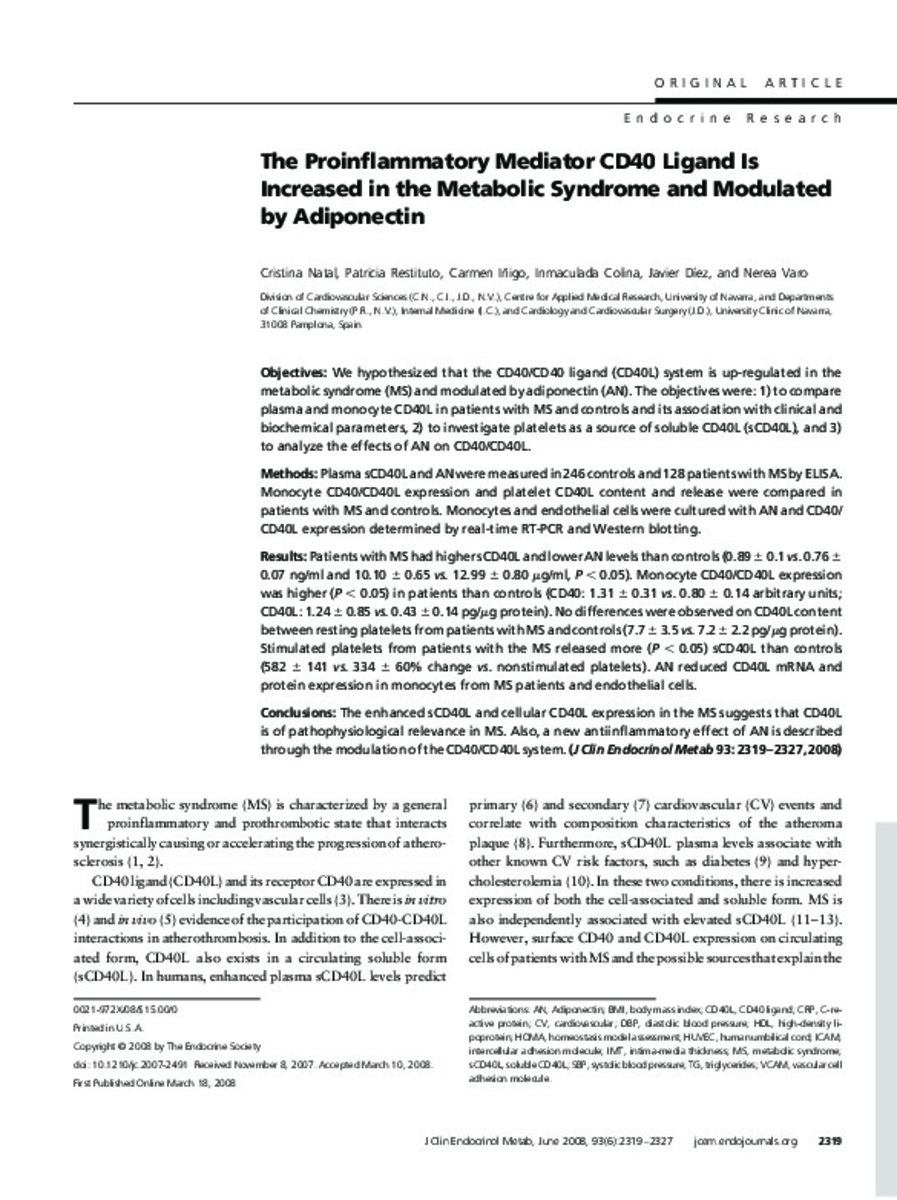The proinflammatory mediator CD40 ligand is increased in the metabolic syndrome and modulated by adiponectin
Keywords:
CD40 Ligand/genetics
Metabolic Syndrome X/genetics
Publisher:
Endocrine Society
Citation:
Natal C, Restituto P, Inigo C, Colina I, Diez J, Varo N. The proinflammatory mediator CD40 ligand is increased in the metabolic syndrome and modulated by adiponectin. J Clin Endocrinol Metab 2008 Jun;93(6):2319-2327.
Statistics and impact
0 citas en

0 citas en

Items in Dadun are protected by copyright, with all rights reserved, unless otherwise indicated.











